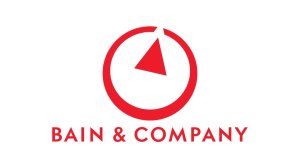Bain & Co. is closing down its consultancy business in Johannesburg, likely bringing to an end a years-long battle to try and restore its reputation in Africa’s biggest economy following a 2022 ban.
“We are winding down consulting operations in South Africa,” Bain said in a response to a query on Tuesday. “In May, we informed our local teams that our Johannesburg office will become a services hub supporting Bain’s global operations.”
South Africa’s National Treasury accused the Boston-based firm of engaging in “corrupt and fraudulent practices” related to a contract with the country’s tax agency and banned it from doing business with government agencies in 2022. Bain was also temporarily barred from competing for UK government contracts because of the scandal in South Africa.
Bain sued the Treasury and tax service in a bid to reverse the censure, which it argued was unconstitutional. It undertook unpaid work for the Energy Council of South Africa before the private-sector group, whose members include Sasol and the local unit of TotalEnergies, ended the relationship — a move that was welcomed by President Cyril Ramaphosa’s office in December.
Bain is one of several international companies — including McKinsey & Co., SAP SE, KPMG LLP and ABB Ltd. — whose reputations were tarnished because of links to State-corruption scandals during former South African President Jacob Zuma’s tenure, which ended in 2018. All paid back fees or accepted fines in a bid to atone for their employees’ conduct.
Bain’s advice contributed to the gutting of the state revenue service. A number of its senior staff were ousted and its investigative capacity was destroyed.
The firm’s former South African head, Vittorio Massone, liaised with Zuma, contravening normal practice. He also met with the former president’s ally, Tom Moyane — whom a commission of inquiry into the tax service accused of wrongdoing — before Moyane became head of the tax agency. Zuma and Moyane have denied wrongdoing.
Ramaphosa has said more than R500-billion was stolen from state coffers during Zuma’s rule.
That corruption led to a commission of inquiry into State graft, which spanned four years. While the testimony implicated a host of government officials, including ministers currently in Ramaphosa’s cabinet, none have been successfully prosecuted to date.
‘Serious Mistakes’
In 2022 Stephen York, Bain’s managing partner in South Africa, wrote a public apology to the country in the form of a full-page advert in Business Day newspaper. He admitted to “serious mistakes in the procurement and execution of our work” at the revenue service, but denied the company was complicit in corruption.
Ismail Momoniat, the Treasury’s then-acting director general, accused the company of “treason” and urged the private sector to stop doing business with it. Sasol has continued to do business with Bain.
York didn’t answer a call to his mobile phone or respond to a text message.
Bain said it will retain most of its staff in South Africa, but didn’t answer questions as to how many people it employs or why the decision had been taken. It also didn’t clarify the status of its court case against the government entities.
The case was filed in South Africa’s High Court about two years ago and has since stalled, with both the Treasury and tax agency having said they would oppose it.
The decision to close the consultancy was reported earlier by the Financial Times.
EMAIL THIS ARTICLE SAVE THIS ARTICLE FEEDBACK
To subscribe email subscriptions@creamermedia.co.za or click here
To advertise email advertising@creamermedia.co.za or click here











